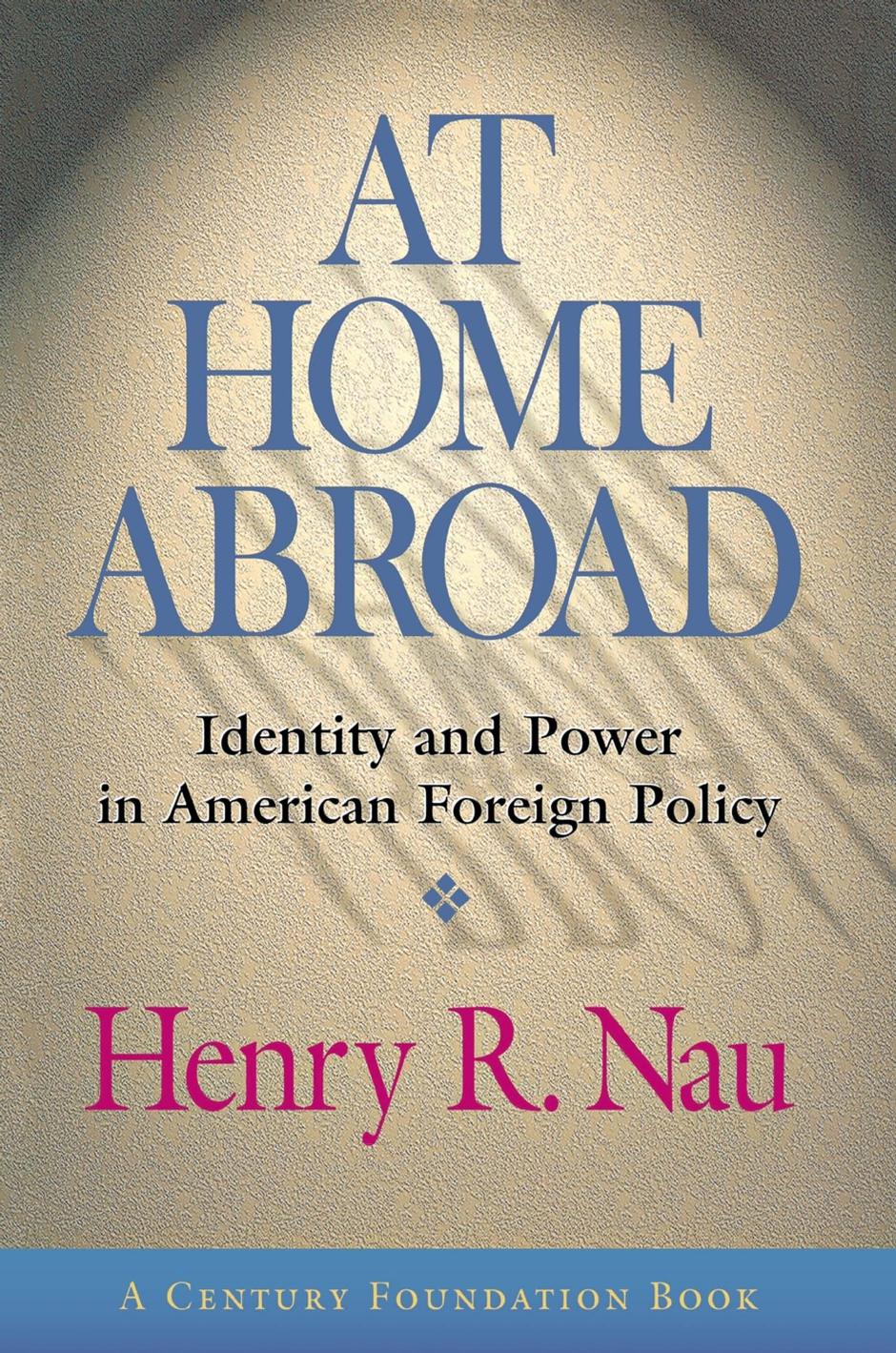At Home Abroad: Identity and Power in American Foreign Policy by Henry R. Nau

Author:Henry R. Nau
Format: pdf
Tags: The United States has never felt at home abroad. The reason for this unease, even after the terrorist attacks of September 11, 2001, is not frequent threats to American security. It is America's identity. The United States, its citizens believe, is a different country, a New World of divided institutions and individualistic markets surviving in an Old World of nationalistic governments and statist economies. In this Old World, the United States finds no comfort and alternately tries to withdraw from it and reform it. America cycles between ambitious internationalist efforts to impose democracy and world order, and more nationalist appeals to trim multilateral commitments and demand that the European and Japanese allies do more.In At Home Abroad, Henry R. Nau explains that America is still unique but no longer so very different. All the industrial great powers in western Europe (and, arguably, also Japan) are now strong liberal democracies. A powerful and peaceful new world exists beyond America's borders and anchors America's identity, easing its discomfort and ending the cycle of withdrawal and reform.Nau draws on constructivist and realist perspectives to show how relative national identities interact with relative national power to define U.S. national interests. He provides fresh insights for U.S. grand strategy toward various countries. In Europe, the identity and power perspective advocates U.S. support for both NATO expansion to consolidate democratic identities in eastern Europe and concurrent, but separate, great-power cooperation with Russia in the United Nations. In Asia, this perspective recommends a shift of U.S. strategy from bilateralism to concentric multilateralism, starting with an emerging democratic security community among the United States, Japan, South Korea, Australia, New Zealand, India, and Taiwan, and progressively widening this community to include reforming ASEAN states and, if it democratizes, China. In the developing world, Nau's approach calls for balancing U.S. moral (identity) and material (power) commitments, avoiding military intervention for purely moral reasons, as in Somalia, but undertaking such intervention when material threats are immediate, as in Afghanistan, or material and moral stakes coincide, as in Kosovo., Publisher:Cornell University Press, Published:2018, Related ISBN:9780801439315, Language:English, OCLC:1132221973
Download
This site does not store any files on its server. We only index and link to content provided by other sites. Please contact the content providers to delete copyright contents if any and email us, we'll remove relevant links or contents immediately.
The Secret History by Donna Tartt(19092)
The Social Justice Warrior Handbook by Lisa De Pasquale(12191)
Thirteen Reasons Why by Jay Asher(8912)
This Is How You Lose Her by Junot Diaz(6889)
Weapons of Math Destruction by Cathy O'Neil(6281)
Zero to One by Peter Thiel(5802)
Beartown by Fredrik Backman(5759)
The Myth of the Strong Leader by Archie Brown(5509)
The Fire Next Time by James Baldwin(5448)
How Democracies Die by Steven Levitsky & Daniel Ziblatt(5219)
Promise Me, Dad by Joe Biden(5154)
Stone's Rules by Roger Stone(5088)
A Higher Loyalty: Truth, Lies, and Leadership by James Comey(4964)
100 Deadly Skills by Clint Emerson(4927)
Rise and Kill First by Ronen Bergman(4790)
Secrecy World by Jake Bernstein(4753)
The David Icke Guide to the Global Conspiracy (and how to end it) by David Icke(4720)
The Farm by Tom Rob Smith(4514)
The Doomsday Machine by Daniel Ellsberg(4490)
